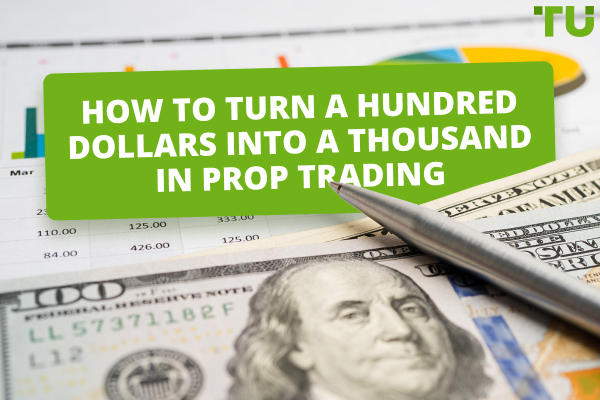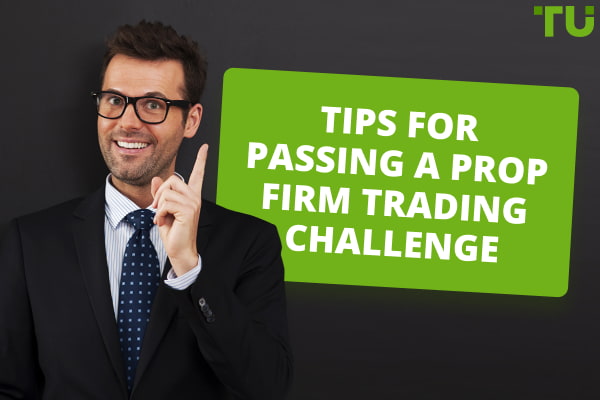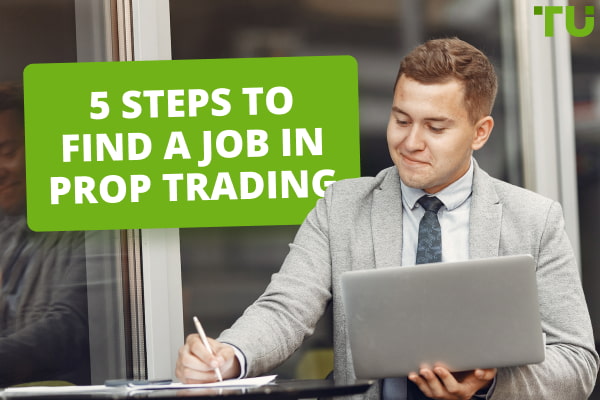What is the failure rate of prop traders?
Some sources state that up to 95% of all prop traders fail their assessments, and less than 2% get to keep their funded account for a substantial amount of time.
Proprietary trading companies, also called prop firms, are becoming increasingly popular among aspiring traders. However, with all these promises on the internet of getting to keep 80 or even 90 percent of the profits and being funded with over $100,000, one might wonder what the actual failure rate of prop traders is.
Surely, they cannot all pass the ‘’challenges’’ and ‘’verification’’ stages these firms have, and with tuition fees ranging from several hundred to thousands of dollars, there are certainly some prop firms out there that know most traders won’t be able to complete their challenges and enroll in their funded account programs.
In this guide, we are going to dive deeper into the matter and unveil what the failure rate of prop traders truly is. Additionally, we will list the top 5 reasons why prop traders fail, provide some tips on how to increase the chances of passing proprietary trading firm challenges, and determine whether prop trading is worth it.
Is prop trading worth it? | How much money can I make?
Prop trading can certainly be worth it. Not only do traders receive access to a substantial amount of trading capital when they successfully pass proprietary trading fund challenges, but they also get to keep 80 - 90% of the profits made. By trading for a prop firm, traders don’t have to put their own hard-earned money on the line, and they can start earning significant amounts of money straight away.
Assuming a trader has passed the prop firm’s trading challenge and knows how to manage risk adequately, the trader can expect to make anywhere from $1,000 to more than $10,000 a month. How much prop firm traders exactly make is dependent on several factors, including the amount of capital allocated, the profit share percentage, and other trading terms and conditions.
How many prop traders fail?
Now, although it all sounds very tempting to earn thousands of dollars trading company funds, you have to keep in mind that it is definitely not easy to pass the ‘’challenges’’ and ‘’verification’’ stages most proprietary trading firms require their applicants to go through. These challenges and verification stages often include strict maximum drawdown, overnight, and swing trading rules, which makes it hard to reach the trading objectives and pass the challenge.
According to our extensive research, between 80 and 95 percent of all traders fail prop firm challenges. These numbers come from various sources, and it shouldn’t be too difficult to understand why these percentages are so high. With so many ‘’TikTok influencers'’ nowadays, a lot more people are interested in trading, and most don’t have any prior trading experience or market knowledge.
Apart from only 10-15% of all traders passing prop firm challenges, only about 1-2% of these traders get to keep their funded accounts for a reasonable amount of time. The most significant reason for this is that there are conflicts of interest between traders and prop firm companies, which we will discuss below.
Top 5 reasons why prop traders fail
The most common reasons why aspiring prop traders fail the challenge and verification stages of proprietary trading firms include the fact that anyone can apply to a prop firm, greed, lack of proper risk discipline, not understanding what drawdown means, and the presence of relative drawdown.
1. Everyone can apply at a prop firm
Although prop firms claim to want to find the best, most skilled traders, this doesn’t mean only this type of trader applies to join one. Everyone can fill in the application form at a prop firm’s website and enroll in the trading challenge in order to become a funded trader.
As there is little to no evaluation process after a participant has paid his or her tuition fees, the prop firm doesn’t know the experience or trading knowledge of the applicant. This fact, in combination with the increased popularity of trading in general, causes many complete beginners to sign up and eventually fail the prop funding challenge.
2. Greed
As we already mentioned that trading large sums of money that isn’t your own appeals to many people nowadays, it is no wonder that many applicants can be considered greedy. After applicants pass the trading challenges and get funded, they want to make as much money as possible in the shortest amount of time. This often leads to overtrading, using too high leverage ratios, and taking too big risks in general.
3. Lack of trading discipline
It is essential to have excellent risk discipline in place when trading the financial markets. Probably this is even more the case with proprietary trading firms. Most traders don’t have this or are very risk aversive, especially when trading with funds that aren’t theirs to begin with.
While most proprietary trading firms require their applicants and traders to use stop-losses, not all do. Recent data published by MyForexFunds shows that over 60% of traders don’t use stop-losses, which we honestly wouldn’t recommend any trader doing. It is no secret that many beginner traders fail to apply adequate risk management, and this can lead to their downfall, especially when trying to get funded by a prop firm.
4. Not understanding max. drawdown rules
Every proprietary trading firm has maximum drawdown rules in its challenge stage. This can be a maximum daily drawdown or a general maximum drawdown over the course of the evaluation stage (typically lasting 30 or 60 trading days). These drawdown rules can be very strict, but even if they are not too strict, many traders don’t read the fine print of the challenge terms and end up breaking these drawdown rules, causing them to fail the proprietary trading firm’s challenge.
Daily drawdowns can enforce discipline by limiting daily losses, but they also create psychological pressure that forces early exits. Firms that don't impose daily limits, offer traders flexibility and a more relaxed environment for strategic decision-making.
5. Relative drawdown
Some proprietary trading firms have conflicts of interest going on and actually want their participants to fail their assessment test. These prop firms have relative drawdown rules in place, which change according to a trader’s performance. This type of drawdown is very hard to keep track of compared to an absolute drawdown, and the prop firm having this type of drawdown in place knows this. We don’t recommend traders applying with any prop firm that has a relative drawdown rule in its terms and conditions.
Top tips to become a successful prop trader
Now that you know why most applicants fail their prop firm assessments and don’t get funded, it is time to discover what you can actually do to increase your chances of getting funded and becoming a successful prop trader.
Compare prop trading firms
One of the first things you should do as an aspiring prop trader is comparing different prop trading firms available to you. There are many options available nowadays, with some having more favorable terms and rules than others. We suggest reading our Best Prop Trading Firms guide to find out which one suits you best.
If you’re only interested in Forex trading, we highly recommend checking out our Best Forex Prop Firms comparison guide instead.
Applying appropriate risk management
One of the most important things to do to increase your chances of passing prop firm trading challenges is to apply appropriate risk management. This means active usage of stop-losses, take-profits, and other technical indicators that can help you with this. Additionally, it wouldn’t hurt to be familiar with the drawdown terms of the challenge you’re trying to pass.
Keeping emotions under control
Psychology is a crucial aspect of trading. As a lot of money is involved, it can be hard to keep your emotions under control. However, it is mandatory that you don’t let fear or greed get the best of you whilst trying to pass a prop firm trading challenge. We highly suggest automating your trading as much as possible to keep emotions at bay from affecting your trading decisions.
Expert Opinion
The evaluation process at prop firms varies. Some offer a one-stage check, while others have a multi-stage process. If it's a one-stage check, the requirements are often set very high from the start. In multi-stage evaluations, the requirements gradually become more stringent. Up to 95% of traders may fail the evaluation, so it's important to realize how challenging the testing process is. Be prepared for these difficulties. A proven and tested strategy, as well as a plan B in case something goes wrong, are essential. Only following a trading plan that has already been tested and proven effective can lead to success.
FAQs
How many times can I take the exam?
As many times as you want. There are no restrictions.
Why do prop traders make so much money?
Behind every earned dollar stand experience, knowledge, discipline, patience, intuition, quick thinking, analytical mindset, understanding of risk levels, time and action planning skills, and emotional resilience. Do you possess these qualities? Then, you too can become a professional prop trader.
How hard is it to pass a prop firm?
You can get the answer to this question by trying to meet the exam conditions of a prop firm on a demo account with any broker. The difficulty is assessed solely by you.
Do I have a chance to get money for management through prop trading?
Everyone has a chance, but it won't be easy. Prop trading is more of an option for professionals, but you can become one too if you believe in your abilities, work on yourself, and continuously enhance your experience and knowledge.
Glossary for novice traders
-
1
Overtrading
Overtrading is a phenomenon where a trader executes too many transactions in the market, surpassing their strategy and trading more frequently than planned. It's a common mistake that can lead to financial losses.
-
2
Leverage
Forex leverage is a tool enabling traders to control larger positions with a relatively small amount of capital, amplifying potential profits and losses based on the chosen leverage ratio.
-
3
Take-Profit
Take-Profit order is a type of trading order that instructs a broker to close a position once the market reaches a specified profit level.
-
4
Forex Risk Management
Risk management in Forex involves strategies and techniques used by traders to minimize potential losses while trading currencies, such as setting stop-loss orders and position sizing, to protect their capital from adverse market movements.
-
5
Forex indicators
Forex indicators are tools used by traders to analyze market data, often based on technical and/or fundamental factors, to make informed trading decisions.
Team that worked on the article
Dennis Graham-Clarke is a professional trading and iGaming copywriter, and a contributor for the Traders Union website with 16 years industry-experience and 5x iGB Affiliate Award shortlists on his name. He spends his time compiling in-depth brokerage reviews and writing compelling trading-related articles and how-to guides.
Dr. BJ Johnson is a PhD in English Language and an editor with over 15 years of experience. He earned his degree in English Language in the U.S and the UK. In 2020, Dr. Johnson joined the Traders Union team. Since then, he has created over 100 exclusive articles and edited over 300 articles of other authors.
Mirjan Hipolito is a journalist and news editor at Traders Union. She is an expert crypto writer with five years of experience in the financial markets. Her specialties are daily market news, price predictions, and Initial Coin Offerings (ICO).













